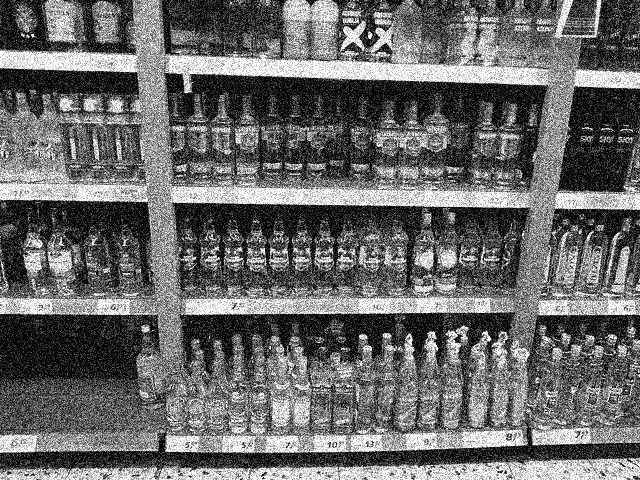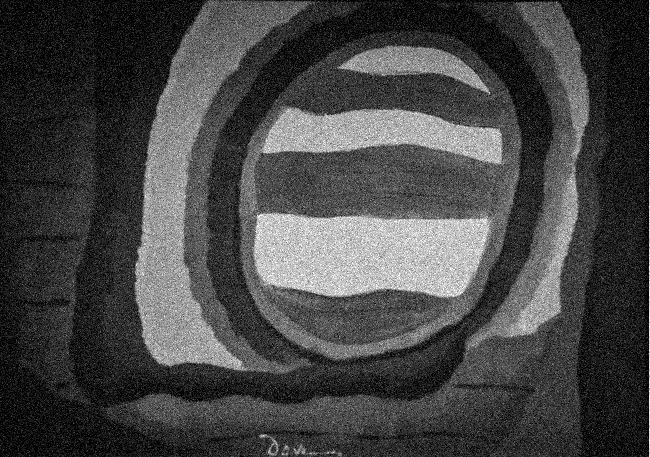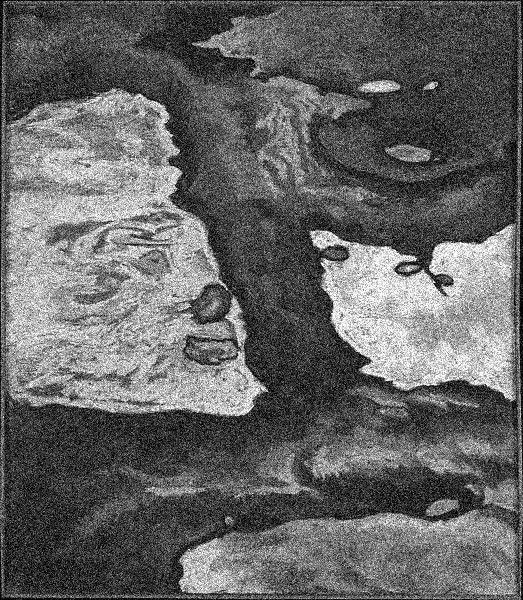Dry Capitalism
The new culture of sobriety is deeply complementary to the joyless, achievement-oriented, toxic positivity of the neoliberal age.

Dry January has, for a certain elect, become a rite of passage. Last year, even as the prolonged pandemic drove many toward drinking, approximately 15 percent of Americans observed. Now nominally recognized as a social trend, something approximating secular Lent for those whose lives lack in ceremonial penance, many professionals between the age of 25 and 40 dive into each new year with an enthusiastic, though unusually semi-conscious and unexplained, desire for self-purification.
Beyond Dry January, the news is rife with stories on either getting sober (“Worried about your drinking? Here’s how to check it”) or, lately, on the difficulties of staying sober (“Sober-curious Millennials and Gen Z are driving Dry January’s comeback after a stressful 2021”) amid the global turmoil. Just last month, New York Magazine profiled Holly Whitaker, author of the immensely popular Quit Like a Woman: The Radical Choice Not to Drink in a Culture Obsessed with Alcohol and creator of Tempest, an online alcohol recovery program that bills itself as an alternative to AA. According to Whitaker, the program claims over 10,000 members.
As a social and cultural phenomenon, sobriety is, of course, nothing new. In the United States, temperance movements emerged as early as the 18th century, driven by a particularly American strain of puritanical moralism. Tocqueville describes encountering such societies in 1831 that “regard drunkenness as the principal cause of the evils under which the State labors.” Prohibition was similarly driven by a sense of religious moralism but, as Miles Kampf-Lassin argues, it was also defended as a means of enhancing worker productivity. While repealed in 1933, its legacy lingers on in AA and the various blue laws that remain on the books throughout the states.
Recently, however, a new teetotaling culture has emerged that combines elements of sobriety’s moralizing and pro-productivity legacy with contemporary aesthetics and achievement culture. Claimed and wielded mainly by the professional managerial class, this new sobriety has also come to enjoy a cultural cachet that’s expanded well beyond the minority of people who find drinking a difficult, or even dangerous, compulsion. The product of a culture shift that occurred sometime in last twenty years, between the days of Pete Doherty burgling his bandmates houses for heroin and crack money and Jared Leto spreading the gospel of “No drugs, no drinking, eating great, + sleeping well,” abstention and pious sobriety have become not only normalized but a mark of social distinction.
Terabytes of content have been produced on sobriety—so much so that distinct subcultures and genres have emerged among the books and podcasts and platforms and retreats. There’s content for girls who aren’t like other girls (Sober as F***: My Two Year Journey of Rediscovery & Self Love), alpha males (The Sober Guy Podcast), people who like coloring books (I’m Too Sober for This Sh!t), new agey types (Recovery Dharma), athletes (Sober Cycle), and moms (Sober Moms, Happy Moms). Even the alt-right had Jordan Peterson warning his followers about the dangers of alcohol (benzos, evidently, were a threat he had not considered yet). Sobriety is officially a megatrend that has come to transcend politics and taste.
An increasing number of films and television shows are confronting sobriety. In 2020, Ben Affleck (basically) played himself in The Way Back, a story about an alcoholic construction worker who blows up his life. 2020’s The Flight Attendant similarly tracks the journey of Cassie (Kaley Cuoco), a messy woman on the way to recovery. This month, Single Drunk Female premiered on Hulu, telling the story of a young alcoholic (Sofia Black-D’Elia) forced to sober up in the home of her overbearing mother (Ally Sheedy). On the Sex and the City sequel, And Just Like That…, Miranda struggles with a drinking problem before getting sober.
While moralizing depictions of alcoholism and other forms of abuse have gone on for decades in film and television, there’s something different about the most recent depictions of excess. While classic Hollywood films like The Lost Weekend or Days of Wine and Roses offered their own brand of pathos-driven, moralizing, they nevertheless depict sobriety as hard-won and, usually, pretty dull. In these films, full-blown alcoholics sober up because it’s the responsible thing to do and because, really, it’s better than dying of cirrhosis. But contemporary media typically offers a far more attractive version of sobriety—a sense of possibility, beauty, excellence, a vita nuova. In the finale of The Flight Attendant, Cassie, glowing, sober, in control, and newly empowered after tangling with international spies, gets what every girl dreams of: an invitation to join the CIA.
No longer presented as a kind of judicious probity, an expression of self-discipline and social responsibility, sobriety has been reframed—at least in affluent circles—as a luxury accessory, a part of the good life. Certainly, being sober is a prudent lifestyle choice for the many who find themselves drinking too much. And sobriety is not the sole province of cultural elites. But sobriety, as a cultural touchstone and an elite social performance framed as a conduit to “living your authentic life,” is hardly benevolent. Rather, sobriety, a form of non-consumption that long effectively stood at a remove from capitalism, has, at last, been operationalized. As sociologist Emily Nicholls argues, despite the fact that sobriety entails the non-participation in a specific set of consumption practices, being sober represents “a new identity that nevertheless remains intrinsically bound up with the market.”
Even more acutely, it could be said that sobriety’s complementarity to contemporary capitalism is not so much a feature of sobriety itself, but rather a function of capitalism, in its 21st century cultural expression as a strange and ecstatic cult of work and wealth, having finally grown compatible with sobriety. In serving the needs of a professional class whose lifestyle inheres—or, at least, appears to inhere—in ceaseless hustle and a mentality of rise and grind, sobriety serves as an aesthetic and performative accessory to the achievement subject.
Alcohol, of course, remains a trillion-dollar business. With the rise of White Claw, catering to the tastes of seltzer-drinking millennials, session beers, to-go cocktails, and the metastasizing trend of rosé all day, the beverage industry is booming and looking to expand. People, simply put, are drinking. Yet sobriety is fast becoming a market force, and a culture, in its own right. Such new popularity, in part, speaks to the eminent adaptability of capitalism to profit both on excess but also on compensatory purification.
Consumers can now choose from an array of faux spirits and dealcoholized wines, enjoy sober travel, and socialize in a growing number of alcohol-free bars. Since 2014, Daybreaker, a company that frames itself as an inclusive space for self-actualization rather than an excuse for excess, has hosted substance-free, early-morning raves in cities across the world. Described as “A community. A lifestyle. A movement,”: “No matter your age, your background or your pronouns, our dance floor beckons your most authentic self.” Those interested can hit an early morning rave on Edge at Hudson Yards and then, presumably, head off for a full day of work without the hangover or the comedown.
For the highest echelons of the wealthy there’s always been the luxury of taking “the cure” at European detox facilities. A practice that first emerged at the turn of the 20th century, such cleansing holidays are popular once again. At Lanserhof Lans, a tiny mountain retreat just outside Innsbruck, Austria, one can enjoy the “detoxification and deacidification of [their] entire organism” while enjoying saltwater pools, with mountain views, “Energy Cuisine,” and medical procedures like “detox drainage” and “liver wraps.” At L’Albereta Relais & Chateaux, “[a] haven dedicated to the art of living and the pleasure of conviviality” near Italy’s Lago d’Iseo, guests can dine on meals prepared by Dominque Chenot, undergo “Chenot Plantar Reflexology,” and explore the “Herbal Tea Area” with its “selection of herbal teas and infusions with drainage and antioxidant properties.” Opulent and typically in the shadow of an Alp or a Dolomite, these sites are little more than resorts with a health and wellness theme. Sobriety may indeed take place there, but they are luxuries first.
For the rich who need more serious interventions than a few days of high-altitude massage, there are the famed celebrity rehab centers in anodyne and palliative surroundings that cater to those with more serious abuse problems. Passages Malibu, a kitschy, neoclassical compound on a hill above Escondido Beach is the most notorious facility in the so-called rehab riviera. Looking more like a high-end strip club than a treatment facility, Passages bills itself as the the “most luxurious addiction rehab center” in the world and offers such luxe amenities as “well-appointed suites, a gourmet chef, ocean-view pool, hot tub, tennis court, and a fully equipped fitness center.” However, despite appearances, even such high-end options often operate on crackpot methods and function more as hotels rather than as legitimate treatment facilities. Passages Malibu, notoriously, frames itself not as a means of beginning a process of sobriety but, rather, a “cure” for addiction and has claimed, without evidence, a success rate of as high as 90%.
Unsurprisingly, one finds a grimly divergent situation for those at the low end of the economic spectrum whose treatment is ordered by the court. While the level of care is generally spotty across most treatment centers regardless of their price tag, celebrities can at least enjoy luxurious accommodations during their treatment. State-funded drug and alcohol rehab centers, by contrast, are often prison-like holding facilities for the poor. The barriers to opening such facilities are effectively non-existent, leading to enormous graft on the part of shady operators. Such centers often function like de-facto prisons, imposing draconian disciplinary measures in unimaginably grim settings.
Given the vast archipelago of industries that have sprung up to treat, support, and inspire the sober, it should be evident that sobriety has become profoundly available to profit and exploitation. But more than mere marketability, sobriety is particularly complementary to the culture of ceaseless performance and ecstatic excess that dominates much of contemporary culture. In this case, it has become eminently useful to a culture that thrives on acceleration.
For contemporary members of the professional managerial class, sobriety has also become an essential site of displaying one’s goodness, what Catherine Liu calls “virtue hoarding.” As she contends in Virtue Hoarders: The Case Against the Professional Managerial Class, in addition to monopolizing wealth and opportunity, the PMC “is shameless about hoarding all forms of secularized virtue.” This group of semi-elites, she argues, lays exclusive claim to righteousness in society, insisting upon its own tastes, behaviors, and privileges as the correct way to live. Working-class people, who either can’t practice such behaviors or can’t practice them in the same way, are accordingly denied virtue and cast as morally responsible for their marginalization.
In the hands of the PMC, sobriety has become extensively moralized as a heightened and more authentic mode of living. More problematically, it is hoarded insofar as the kinds of adventuresome and liberated sobriety promoted by the PMC are often simply unattainable for those without means. Working-class people can and certainly do get sober, but cannot necessarily travel sober to “exotic and tropical locations” or throw themselves “into the unknown, discover [their] tribe and join the alcohol-free travel revolution.”
The Sober Lush: The Hedonist’s Guide to Living a Decadent, Adventurous, Soulful Life—Alcohol Free by Austin-based writers Amanda Eyre Ward and Jardine Libaire is one such example of PMC privilege. The book details how to live a life of “abundance and pleasure” without alcohol. But what the book details, beyond more sobriety, is a model of class hedonism that masquerades as virtue but inheres in elite privilege. As Ward and Libaire contend, their philosophy is rooted in “abundance and pleasure.” Their book accordingly articulates a litany of alternate modes of sober life that aims to replace abstinence with other forms of excess.
Motorcycling, partying, traveling, collecting, curating, raising children, exercising, and “adult snow days”—a strange and indulgent self-infantilization that involves staying in bed all day—take up the text, framed as an attempt to “reclaim” a sense of sober excess, or lushness. Through these activities, Ward and Libaire proudly announce that their sobriety is equally as rich and abundant as drunkenness. But while sobriety is certainly available to anyone of any class and at any income level, the liberated, “bejeweled,” risk-taking, substance-free life that that rests in “Ethiopian coffee and sex and vetiver” is very much not. The kind of alternative richness—one that clearly involves the freedom to raise multiple children in material comfort while also taking ample time for oneself—is little more than an amplification of standard PMC mores. Such a sobriety is a celebration of privilege and rarified taste ultimately constructed as unavailable to those without the means to enjoy them.
Beyond its marketization and hoarding by the PMC, sobriety is increasingly, and dubiously, framed in terms of boosting raw human potential and productivity rather than as a matter of health. Sobriety, in such contexts, is constructed as the hack, the secret weapon that those under late capitalism need to get ahead. In a global society that reveres the hustle and peak performance, sobriety is an act of responsible acquiescence to neoliberal demands, a necessary asset to meet as mandate of ceaseless acceleration.
In an article for Business Insider, Darren Marble describes sobriety as enabling the overwork necessary to excel in modern society: “You need discipline to gear up to work late nights or weekends so you can close your next deal, hit your next milestone, or onboard your next developer. The hard truth is that drinking, smoking, or using drugs, even if only occasionally, is the exact opposite of discipline.” In The Telegraph, Kate Bailey suggests focusing on a “core value” such as productivity to promote sobriety: “link your decision to be sober to one of those values… ‘I am sober to perfect my downward dog.’” In these articulations, becoming sober is no longer merely a matter of improving one’s life but of being the best and meeting the expectations of tireless efficiency and improvement that are the norm today.
Bailey is something of a guru in the sobriety industry. Co-author of Love Yourself Sober: A Self-Care Guide to Alcohol Free Living, co-host of the Love Sober Podcast, and coach for the “sober and sober curious,” she believes that sobriety is the key to a more liberated and productive life. As she writes of her prior drinking, which she insists was significant “but not vodka on the cornflakes” bad, “I couldn’t get out to yoga classes; I couldn’t go out in the evening. I felt like I was a prisoner in my own home.” Sobriety, accordingly, makes possible these freedoms. Moreover, for Bailey, sobriety is framed as providing a kind of transformational agency: “I feel like a different woman today, a different kind of mum.” She understands herself not only as one who can do more, but frames such capacitation turning her into a different kind of person.
Of course, being drunk does impair one’s capacity to work, at least in the moment. But the assumption that alcohol necessarily and unequivocally blunts work performance has, in fact, been credibly challenged. But more to the point, those touting sobriety’s benefit to productivity gloss the question of whether or not more productivity is even desirable. For many striving to get ahead today, pathological productivity is framed as a virtue and an avenue to success rather than as a manifestation of capitalist dominance. As YouTube personality Chris Williamson frames his sobriety, “I was able to put my mind onto a single task for a long time. And the thing is, I like getting things done and being productive. That’s a source of happiness for me. So by going sober, I was more productive, which made me happier.” Sobriety, in other words, supports an ideology in which self-worth, even happiness, is tied up in our capacity to produce.
Sobriety is certainly having its moment—at least, for those with the time and income to be moved by its appeals—and it is absolutely integral to achieving optimum beauty, health and value in today’s world. Everywhere we are met with either some avowed form of sobriety or an apologetic accounting of one’s excesses. Whether or not we are sober, we are nevertheless defined in relation to sobriety.
But drying out is a grim answer to the problems posed by diminished life chances in late capitalism. Like the regimes of exercise and self-purification that dominate the entertainment industry, sobriety may make us look better in the gym mirror and might even make improvements in our health and mood, but what sobriety unquestionably does not offer is either relief or deliverance from an intolerable system. It does nothing for the underlying crisis that we’ve worked far too hard for too long and, in effect, given all of ourselves away. Sobriety, more than anything, is an asset to the joyless, punishing routine, and it certainly doesn’t help us to “live as [our] authentic self.”
■
James Rushing Daniel is an assistant teaching professor of English at the University of Washington and author of Toward an Anti-Capitalist Composition (2022).



